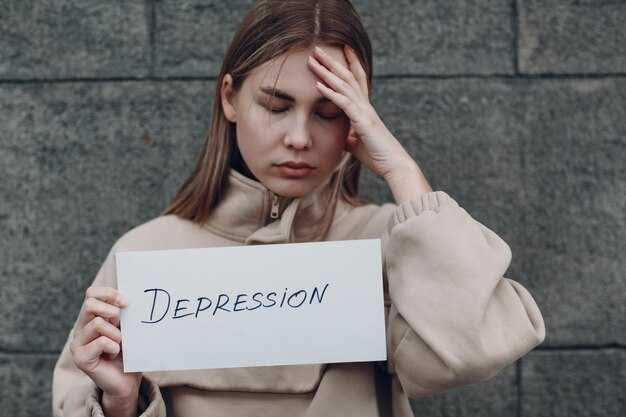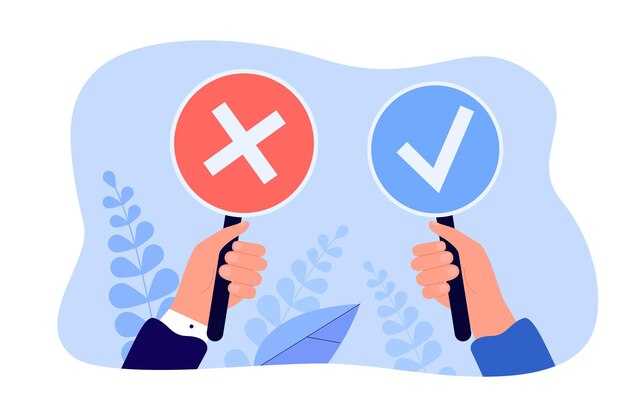Anxious attachment wrecked nearly every romantic relationship I’ve been in. I was convinced that closeness meant always putting someone else’s feelings and needs before my own, that setting boundaries was rude, and that any hint of conflict had to be avoided. Even when I lived that way, happiness kept eluding me. What I didn’t see then was that I was manufacturing the very outcomes I feared: either I ended up with emotionally immature partners and wondered why I felt ignored and alone, or I kept giving without limits until resentment built up — and even when I resented them, I still felt stuck and couldn’t bring myself to leave. Ugh — that’s bleak, I know. Anyway, I want to share five specific ways my anxious attachment undermined my relationships, what I did to own it, and practical steps you can take to stop it from happening to you.
First, a quick primer on anxious attachment for anyone unfamiliar. In the 1950s John Bowlby and Mary Ainsworth developed attachment theory, which, in plain terms, says the way you bonded with your primary caregivers shapes how you bond with intimate partners later in life. That’s why therapists ask about childhood — not to assign blame, but because childhood is a classroom where we learned patterns of relating, whether we wanted to or not. If your early caregivers were inconsistent in meeting emotional needs — not necessarily bad people, often people coping with their own wounds — and you felt overlooked, ignored, or emotionally alone, you likely developed survival strategies to cope in that environment. Those strategies made sense then, but they can cause trouble later.
A bit about my history: as a kid, I saw my dad mostly on weekends — more like every other weekend — because he had another family. I loved visiting them, but underneath I was quietly terrified he might stop coming for me. He already had a full household over there; maybe it would be easier for him to stop thinking about me. That fear — abandonment — shaped how I related to people afterward. My dad loved me and did his best, but the anxious pattern didn’t simply vanish. While at his house I performed: read the room, avoid upsetting anyone, be the peacemaker, make people laugh, do what it took to seem not needy so I’d be loved and not left. No child should have to feel they must perform to be worthy of love. Anxious attachment doesn’t prove your parents were flawed — it shows how uneven affection and attention teach you to be on guard.
When love felt unreliable growing up — sometimes you’re prioritized, sometimes you’re dismissed; sometimes you’re heard, sometimes ignored — you end up on edge in adult relationships, bracing for the next letdown. That anticipation makes it hard even to trust the good moments, because you’re always waiting for them to turn bad. And the strategies people use to prevent separation or distance often backfire and create the very disconnect they fear.
The first way I sabotaged relationships was through people-pleasing. Not every anxiously attached person is a chronic pleaser, but there’s plenty of overlap. Why does people-pleasing harm closeness? Because persistently putting others before yourself keeps you from showing up authentically. You hide needs and opinions out of fear of being “too much,” or because you don’t believe you deserve to be prioritized or pursued. When you constantly let others’ wants lead, you’re vulnerable to being taken advantage of. Boundaries aren’t mean — they’re the guardrails you set so you can be present and feel safe in a relationship. Boundaries are simply the conditions you need to thrive with another person. Done well, they don’t repel the right people; they reveal who’s truly compatible. For example, a communication boundary might be: if someone starts yelling or name-calling, I will step away from the conversation. They don’t have to respect your boundary, but you do have to honor it to protect yourself.
The second way was clinginess and an unhealthy appetite for reassurance. If you’re terrified of losing someone, you naturally become hypervigilant: scanning for signs that the bond is weakening. Most people don’t respond well to being smothered; they’re drawn to healthy interdependence — partners who enjoy one another’s company but also have their own lives. Anxiously attached people often struggle to cultivate a rich solo life; we tend to chase love outside ourselves. That’s why building a meaningful life before — not after — you enter a relationship is crucial. When you’re whole on your own, a partner adds to your life rather than defining it. Hypervigilance also breeds mistrust and story-making: you interpret neutral moments as threats, panic, and act in ways (repeated texts, calls, contacting friends) that push people away. Instead of vulnerably bringing up the worry, we invent a narrative and then behave as though it’s fact. The familiar cycle: no reply, more messages, calls, contacting friends, spiraling, then when they finally answer you feel shame and the dynamic shifts — and you scramble to earn them back by people-pleasing.
Breaking that cycle takes different work: sit with the feelings rather than instantly reacting, journal through the panic, call a trusted friend or coach, and resist blast-texting someone in an effort to soothe yourself. Start practicing new behaviors: assert your needs calmly and directly. If a partner’s inconsistent texting leaves you feeling overlooked, it’s okay to say, “I’ve realized I need a bit more communication in my relationships. When you don’t reply until the next day it leaves me feeling unprioritized.” That doesn’t mean you’re being overly needy — sometimes needing reassurance is a perfectly reasonable response to avoidant behavior. Also know people can shift attachment styles depending on who they’re with: two anxious people together may alternate between clinging and pushing away; switching between cling and distance can indicate disorganized attachment. The core of insecure attachment is fear — fear of not being seen, held, or loved — and the strategies we use to prevent that hurt often sabotage the very closeness we crave.
The third pattern I fell into was choosing emotionally unavailable partners. It felt familiar and, perversely, safe to pick people who would take advantage of my caretaking — I’d do the giving and sacrifice, and the dynamic felt known. Our brains prioritize safety and familiarity over what’s actually healthy. Early on, people-pleasing can feel more comfortable because it’s what we learned. I also had a savior complex: attracted to “fixing” damaged people because healing them made me feel needed. But most people aren’t willing to do the hard inner work, and your love won’t compel them to change; often it’ll push them away more. This isn’t about blaming victims — if you were abused, that was not your fault — but healing requires honest reflection about why you chose or stayed with certain people. Ask yourself: did I come from a place of self-abandonment? Did I look to them to confirm my worth? Taking responsibility for your patterns empowers you to choose differently in the future.
A telling example from my life: I was dumped eight times and I only broke up with one person — who, in retrospect, was the healthiest of them all. She was emotionally available, consistent, attentive, and didn’t play games. I didn’t have to chase her, and after a few weeks I found myself bored. Why? I realized I’d been drawn to uncertainty and the adrenaline of the chase — the pull-away/pursue cycle — not to steady, mature affection. I wanted to be the healer, the fixer. When someone actually offered emotional stability, it felt foreign and I rejected it.
The fourth way I undermined intimacy was by avoiding conflict. If you don’t feel safe to speak honestly about difficult things, the relationship will suffer — it’s not the conflict itself that destroys a bond but how you handle or dodge it. Anxiously attached people often fear making an issue “too big” or provoking a fight, so they avoid crucial conversations. That strategy accumulates resentment. You need to cultivate a culture of honesty with your partner: if something matters to you, it should matter to them. When you bring up concerns, aim for vulnerability without blame: “When this happened, I felt hurt/rejected/confused. The story I’m telling myself is that you didn’t care. I wish X would have happened instead.” A partner’s job is to listen with the intent to understand, get curious, validate your experience, and work toward empathy. That’s hard — triggers, shame, defensiveness, and immaturity all get in the way — but if both people aren’t willing to resolve conflict respectfully and vulnerably, the relationship won’t sustain trust, intimacy, and connection.
You might think, “Even if I do that, they’ll ignore me.” If your partner consistently refuses to take accountability or engage in repair, you won’t experience real connection with them. It’s not your responsibility to remake someone into an emotionally mature adult. You can ask for change, share how their patterns affect you, and request more repair and communication — but you can’t force transformation. Anxious attachment tendencies lead us to try to prevent the consequences of someone else’s choices; healthy attachment recognizes that it’s not your job to do their work. It takes two people showing up and committing to growth. If one person won’t engage, intimacy is unlikely.
The fifth way I hurt my own love life was by staying in relationships far longer than I should have. My dread of abandonment and craving to be chosen made me cling to situations I knew weren’t right. I rarely asked myself core questions: do I actually like this person? Do they make me feel safe enough to be honest? Am I genuinely happy? I remember staying months after I decided I’d never marry someone because the familiar misery felt less scary than the unknown. I imagined all the negative scenarios (what if they find someone else and treat them well?) but rarely considered, “What if I’m happier without them?” Toxic relationships make you lonelier than being single ever could. You can’t achieve closeness with someone who has no interest or capacity for healthy communication and mutual curiosity about your inner world. Keep short accounts; if someone’s hurt or needs love differently, that’s information worth hearing, not a reason to shame them. And while it’s easy to blame a partner’s flaws, you must also honestly acknowledge where you stayed, why you tolerated mistreatment, and when you failed to uphold your own boundaries.
Practically, here’s what to start doing: get clearer about feelings — “I feel hurt,” “I feel lonely,” “I feel ignored” — rather than vague judgments like “You’re being a jerk.” Identify needs: “I need a bit more reassurance in this relationship” is okay to say. Pause before spinning into catastrophic stories; give yourself time to reflect and decide instead of exploding into action. Either learn to trust their reassurances or choose to leave, because trust is the foundation of intimacy. Figure out how you feel loved and be brave enough to say that out loud. Work on people-pleasing: you don’t owe immediate yes answers to every request; practice saying no, or “I need time to think about that.” Give from abundance, not obligation. Stop over-apologizing, but do take accountability when it’s due: “I realize my excessive need for reassurance came from my fears; that was my issue and I’m working on it — I’m sorry.” Experiment with making simple choices for yourself, like picking the movie or restaurant, so you stop outsourcing every preference. And finally, trust your gut: if something consistently feels off, honor that feeling. Wanting consistency, kindness, respect, and empathy is not being “too needy” — those are legitimate needs.
Remember, many of us grew up with imperfect care in some way and we’re all learning to identify and heal our fears. Be patient and compassionate with yourself as you practice new ways of relating. You deserve to be loved in a way that helps you feel safe and seen.


 Anxious Attachment leads to Heartbreak until you do this…">
Anxious Attachment leads to Heartbreak until you do this…">

 How to Get Any Avoidant to Fully Commit And Never Pull Away | Jordan Peterson Motivational Speech">
How to Get Any Avoidant to Fully Commit And Never Pull Away | Jordan Peterson Motivational Speech">
 Why Narcissists Want To Stay FRIENDS After They Break Up With You">
Why Narcissists Want To Stay FRIENDS After They Break Up With You">
 LOVE Can’t be Built without THIS">
LOVE Can’t be Built without THIS">
 How to End Limerence Before You Destroy Everything Good">
How to End Limerence Before You Destroy Everything Good">
 I was adding to HER Mental Load.">
I was adding to HER Mental Load.">
 10 Surprising Things That Block Your Emotional Availability (and 7 Things That Set You Free)">
10 Surprising Things That Block Your Emotional Availability (and 7 Things That Set You Free)">
 Look For These Signs and Then Don’t Compromise">
Look For These Signs and Then Don’t Compromise">
 Why You Feel Left Out in Groups (and What to Do About It)">
Why You Feel Left Out in Groups (and What to Do About It)">
 Relationship Advice: Abandoning your Boundaries isn’t Love">
Relationship Advice: Abandoning your Boundaries isn’t Love">
 Don’t Know What You’re Gonna Do About This Avoidant Person ..Cause They’re About To Chase You! | J.P">
Don’t Know What You’re Gonna Do About This Avoidant Person ..Cause They’re About To Chase You! | J.P">